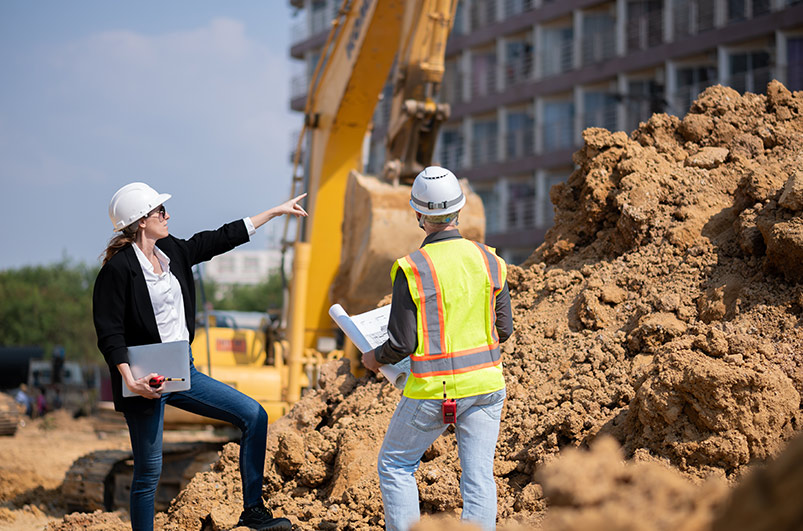May 30, 2025 / By Bruno Clay
Hiring the right general contractor can be the difference between a seamless, on-time project and a costly construction headache. In a complex and regulated market like Washington, DC, the stakes are even higher. Yet many owners—whether developers, business operators, or institutional stakeholders—fall into the same avoidable traps.
At Bruno Clay, we’ve worked alongside clients across DC, Virginia, and Maryland for decades. We’ve seen what works—and what doesn’t—when it comes to selecting a construction partner. This guide will walk you through the most common mistakes we see and how to avoid them, so you can protect your investment and build with confidence.
1. Prioritizing Price Over Value
Choosing the lowest bidder might seem financially prudent, but it often leads to long-term problems—substandard workmanship, mismanaged subcontractors, hidden change orders, or scope cuts you didn’t anticipate.
Instead, focus on overall value. A qualified general contractor may offer a more accurate budget up front, backed by vetted subcontractors and a stronger project schedule. In DC, especially, where permitting delays or rework can be expensive, value beats a bargain.
2. Hiring Without Verifying Licensing and Insurance
Washington, DC has strict licensing requirements for contractors. Hiring a firm without proper licensing or insurance can expose you to legal liabilities, stop-work orders, and delays.
What to do instead: Always confirm the contractor holds a valid license in DC, carries general liability and workers’ comp insurance, and is in good standing with the Department of Consumer and Regulatory Affairs (DCRA).
3. Overlooking Experience with DC-Specific Regulations
DC’s construction environment is uniquely complex—historic preservation boards, zoning overlays, neighborhood commissions, utility coordination, and more. Hiring a contractor without experience navigating this landscape can stall your project before it starts.
What to look for: Choose a GC with proven experience in DC. Ask for case studies or references for similar projects within the city, not just in the surrounding region.
4. Ignoring Project Type Alignment
Not every contractor is suited for every project. A firm that specializes in kitchen remodels or suburban home builds may not have the infrastructure to handle a 50,000 sq ft multifamily renovation in DC.
Avoid mismatch: Make sure the GC’s portfolio aligns with your project type—whether that’s retail, institutional, multifamily, or land development.
5. Failing to Assess Subcontractor Relationships
Your GC is only as strong as their subcontractor network. Poorly vetted or overbooked subcontractors can lead to delays, inconsistent quality, or coordination breakdowns.
What to ask: How does the contractor select and manage subcontractors? Do they have long-standing relationships? Are they locally based? How is quality and timeline accountability enforced?
6. Skipping the Preconstruction Phase
Jumping straight into construction without thorough preconstruction planning is a recipe for misaligned budgets, permit issues, and scope creep.
Better approach: A qualified GC will engage in value engineering, constructability reviews, and cash flow forecasting during preconstruction to minimize surprises later.
7. Not Establishing Clear Communication Channels
Many construction setbacks result from poor communication—unclear expectations, missed approvals, or delays in responding to site conditions.
What to do instead: Clarify who your point of contact is (project manager, superintendent, or executive) and how often you’ll receive progress updates. Make sure there’s a system in place for approvals, RFIs, and change orders.
8. Overlooking Contract Structure and Terms
Contracts are not just paperwork—they’re protection. Rushing through terms or signing templated agreements can leave you exposed to vague scopes, unfavorable payment terms, or disputes later on.
Recommendation: Review all contracts with your legal team. Ensure scopes are clearly defined, terms for change orders are outlined, and deliverables are measurable.
Final Thoughts: Build Smart from the Start
Washington, DC is a market where informed decisions are critical. Avoiding these common mistakes can save you time, money, and frustration—and set your project up for success from day one.
At Bruno Clay, we bring a local-first mindset, decades of GC experience, and a commitment to transparency and results. If you’re planning a construction project in DC, we invite you to talk with us about how we can help you avoid costly missteps and deliver with confidence.
Ready to build smarter?
Contact our team today to schedule a consultation.


